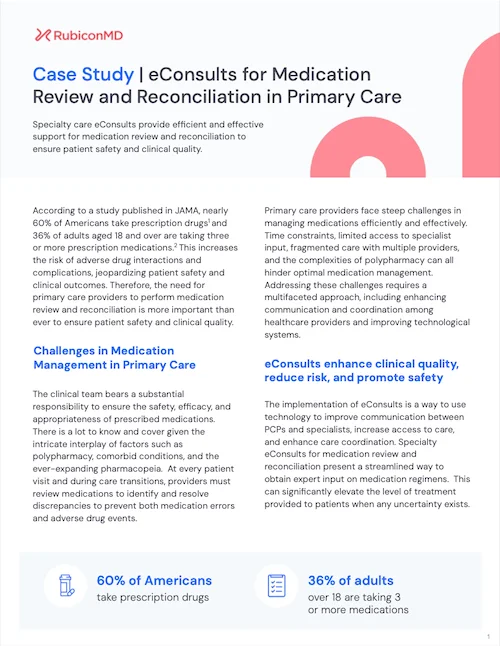eConsult Transcript
PCP submission
68 year old female PMH HLD, HTN, CHF, MDD, alpha thalassemia, AAA, emphysema, ILD, GERD, s/p gastric bypass > 10 years ago, lost over 105 lbs. Patient saw neurology for chronic HA and imaging showed cerebrovascular small vessel disease. Neurologist started patient on baby aspirin (already on statin/anti-HTN).
Can you comment on safety/other options of ASA in this case?
Specialist response
Thank you for this consult and for involving me in your patient’s care. And, thank you for recognizing the importance of this question and asking about it. Congratulations to your patient for having such good success with their gastric bypass surgery. 105 lbs and 10 years out is fantastic! Unfortunately, the question about aspirin is a real tough one because the risk of taking any type of NSAIDs or steroids (coffee, smoking and ETOH) all increase the risk of patients who have had gastric bypass to form a marginal ulcer. Marginal ulcers (a mucosal ulcer that forms at the anastomosis of the stomach and jejunum), once they form are very hard to treat and tend to be recalcitrant to conservative management. However, headaches and risk of strokes or other complications from small vessel cerebrovascular disease is also unpleasant and a risk without taking aspirin. In these cases, surgeons tend to go back to the specialists prescribing the ASA and ask to consider the risks vs benefits of taking the ASA vs. marginal ulcer risk in the individual patient. The patient also needs to have all of the facts and make the choice as to whether to take the aspirin or not. There honestly is no other substitutes that are not similar in that they still have risks of forming ulcers. I am afraid that I am unable to give a definite yes or no answer. In my experience, I shy away from all NSAIDS in patients that have had bariatric surgery because I have seen terrible complications of marginal ulcerations. That said, the patient is fairly far out from her surgery and I would be more concerned if the patient just had recent surgery. If the patient decides to go on the ASA, one possible alternative (that does also have it’s pros and cons) is to take a PPI or H2 blocker to prevent ulcers while on the aspirin. The PPIs have their own issues. However, I do see that you have listed that the patient does have a history of GERD. Are they on a PPI? If so this can help protect the patient if they take the ASA. If the patient is not on a PPI then I imagine that this might be a good reason to start one while taking the ASA. Here is a PUBMED article that retrospectively looked at those on ASA vs. not and it showed no difference in ulceration. (cautioning that this is one study and retrospective).
https://link.springer.com/article/10.1007%2Fs11695-016-2462-z Hoping that this is somewhat helpful. Has the patient had nutrition labs checked recently. Always good to make sure that all vitamins are within normal limits. I have attached a list of the recommended vitamins the patient should be taking as a bariatric gastric bypass patient. And, below is a list of the vitamins that should be checked routinely (at least once per year). Here are the labs that are ordered yearly for bariatric patients and recommended to be checked by the ASMBS: CBC, CMP (liver enzymes included), coags, lipid panel Vitamins B1 (thiamin), B12, folate Vitamin A, D and E Prealbumin (to check protein status) Albumin PTH, calcium, magnesium TSH iron panel If diabetic HbA1C If patient has significant deficiencies may want to consider also checking vitamin K, Copper and Zinc levels too (as this sometimes can cause anemia). Wishing the patient the best.
